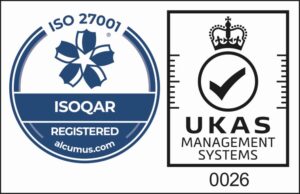IT MSPs and Mobile Device Management (MDM)
Discussing how MSPs help businesses secure and manage mobile devices, enforce policies, and ensure data protection in a mobile workforce.
With the increasing prevalence of mobile devices in the workplace, businesses face the challenge of managing and securing these devices to protect sensitive data and ensure compliance with industry regulations. This is where IT Managed Service Providers (MSPs) play a crucial role in assisting businesses with Mobile Device Management (MDM). Here’s a closer look at how MSPs help businesses secure and manage mobile devices:
Policy Development and Enforcement
MSPs work closely with businesses to develop comprehensive mobile device policies that align with their security requirements and industry regulations. These policies define guidelines for device usage, data access, application installation, and more. MSPs assist in enforcing these policies by implementing MDM solutions that enforce security settings, device restrictions, and compliance measures.
Secure Device Enrollment and Configuration
MSPs help businesses streamline the process of enrolling and configuring mobile devices within their network. They leverage MDM platforms to facilitate device enrollment, ensuring that devices are properly authenticated, registered, and configured with necessary security settings. This process includes the provisioning of email, Wi-Fi, VPN, and other critical settings to ensure secure connectivity.
Data Protection and Encryption
MSPs implement measures to protect sensitive data on mobile devices. They enforce encryption policies to safeguard data stored on devices and during data transmission. MSPs also configure remote wipe capabilities, enabling businesses to erase data on lost or stolen devices to prevent unauthorized access. By implementing robust security measures, MSPs help businesses maintain the confidentiality and integrity of their data.
Application Management
MSPs assist businesses in managing and securing mobile applications across devices. They help establish an approved application list, deploy applications to devices, and ensure that only authorized applications are installed. MSPs also implement application-level security controls, such as app blacklisting or whitelisting, to prevent the installation of malicious or non-compliant applications.
Device Monitoring and Compliance Reporting
MSPs monitor mobile devices for compliance with security policies and regulations. They track device configurations, security settings, and compliance status to identify any deviations or vulnerabilities. MSPs provide regular compliance reports, highlighting areas of concern and recommending remedial actions to ensure ongoing adherence to security standards.
Remote Support and Troubleshooting
MSPs offer remote support services to address mobile device-related issues faced by employees. They provide assistance with device setup, configuration, and troubleshooting. MSPs can remotely access devices to diagnose and resolve technical problems, ensuring minimal disruption to the mobile workforce.
Mobile Threat Detection and Response
MSPs implement mobile threat detection solutions to proactively identify and respond to potential security threats on mobile devices. They utilize advanced security tools and technologies to monitor device behavior, detect anomalies, and protect against mobile malware, phishing attacks, and other mobile-specific threats.
Device Decommissioning and Disposal
MSPs assist businesses with proper device decommissioning and disposal to mitigate data leakage risks. They ensure that data is securely wiped from retired or recycled devices, preventing unauthorized access to sensitive information.
By partnering with MSPs for Mobile Device Management, businesses can effectively secure and manage their mobile devices, enforce policies, and ensure data protection in a mobile workforce. MSPs bring expertise, specialized tools, and industry best practices to help businesses navigate the challenges of mobile security, allowing them to embrace mobility while maintaining a robust security posture.




